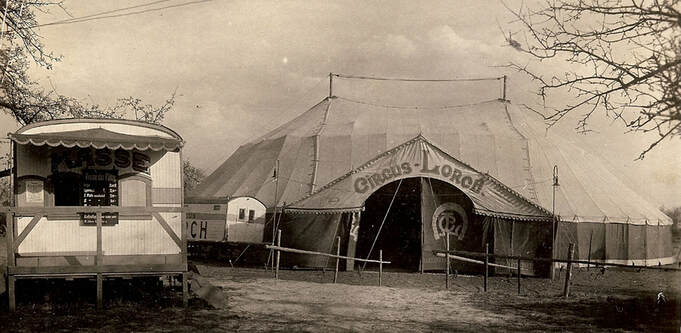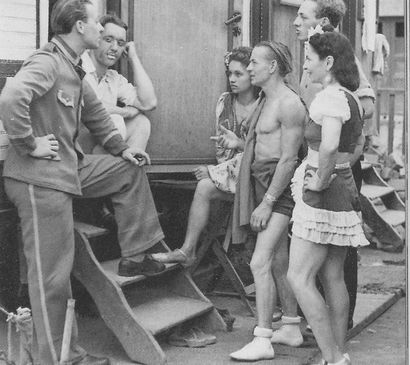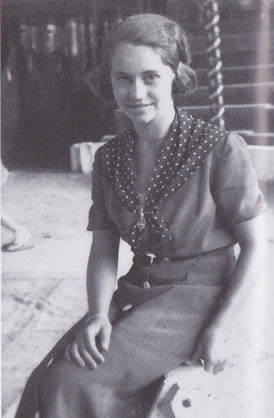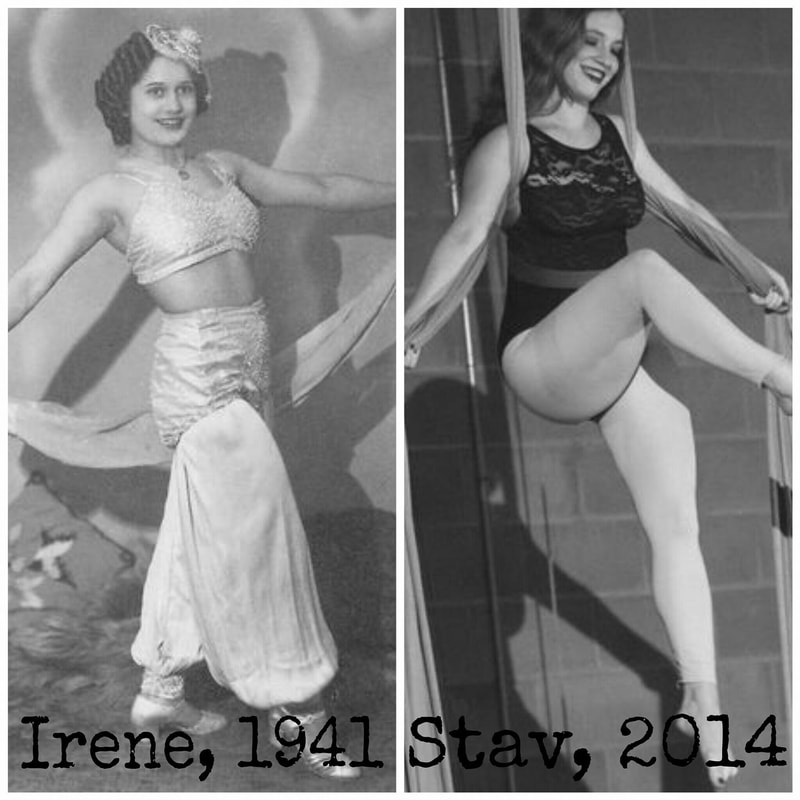The History Behind The Show
Irene Danner-Storm's maternal family, The Lorch family, was one of a few Jewish families who ran their own circuses in Germany for generations before the rise of the National Socialists. The Lorch Circus was large, successful and famous all throughout Europe; their family's Risley act traveled as far as the United States and South America. Everything changed when the ever-growing antisemitism in Germany forced the Lorch Circus out of business and soon, with the Nazis rise to power, Jews were being sent to ghettos and camps. The Lorchs' very lives were in danger. Joining the Althoff Circus was not only a means to make a living; it was a desperate attempt to stay alive.
|
The show's heroine is the 19-year-old Irene Danner. Her maternal grandfather, the world renowned Icarian acrobat Julius Lorch, has been teaching her tricks since she was a little girl. As a teenager, she joined the Busch Circus where she learned trick riding working for the Italian Caroli troupe. She was the first of the Lorchs to join the Althoff Circus, convincing the owner Adolf to employ her at a time when hiring Jews was illegal.
While working at the circus, Irene entered a romantic relationship with Peter Bento of the Bento Clown Troupe. Peter taught her clowning skills and she became part of his family act. Irene also forged a friendship with Peter's best friend, the acrobat Mohammed of Morocco. Peter, Mohammed and Adolf were inseparable friends, affectionately nicknamed "The Three Musketeers". Irene was Jewish, Peter was not. Marrying was illegal. Nonetheless, the two were very much in love and - under great risk - had two children during the war. |
As the war progressed, the Althoff Circus traveled all over Germany and Austria with Irene performing on its sawdust stage. In 1942, after a few of her family members were deported to Auschwitz, Irene and Peter persuaded Adolf and Maria Althoff to extend their generosity to Irene's mother, father and sister, who were allowed to join them at the circus.
When SS officers showed up for surprise inspections, Adolf cleverly distracted them with his amusing tales and an abundance of alcohol, while Mohammed helped the family hide. Althoff's protection saved their lives. After the war Irene and Peter were finally married. They moved back to Irene's hometown, raised their family there and remained together all their lives. They are buried there alongside Irene's parents. In 1995, Adolf and Maria Althoff were recognized by the Yad Vashem museum in Israel as "Righteous Among the Nations", an honorary title bestowed on non-Jews who helped save the lives of Jewish people during the Holocaust. When asked why he risked his own life to save the lives of the Lorchs, Adolf replied: "We circus people see no difference between races or religions. Circus people live in the entire world and are of the entire world". |
More about our research:
Why This Story, Why Now, Why Me
|
I have never come across a story I felt such a strong urge to tell as that of the Lorch family and their saviors from the Althoff Circus. My deep connection to their story runs on multiple levels: I am a circus artist, a third generation to Holocaust survivors and a Jewish educator. Above all, this urge comes from recognizing the importance of this story's message in today's political and social climate. The more I research the history and true events of this family (and other Jewish-German circuses of the era), the more I fear that we learned nothing and the more certain I become that these stories should serve to remind us the responsibility each of us holds for our fellowmen.
|
For the Althoffs, the Lorch family was neither Jewish nor German, they were simply – Circus. They protected them despite the risk it brought to their own lives and livelihoods, because they felt that circus had to stick together. Circus is a microcosmos of its own, where one's value stems from what one can contribute to the whole. Circus people are judged for their abilities, not for their race, religion or gender. In a world where countries close their doors to immigrants, where people are murdered for the color of their skin, where fascist voices are once again getting stronger - in such a world, it feels more urgent than ever to ensure history isn't forgotten. This story's message of tolerance and acceptance, of courage and activism, of people taking risks to save another's life - it comes from circus but applies to any and to all.




